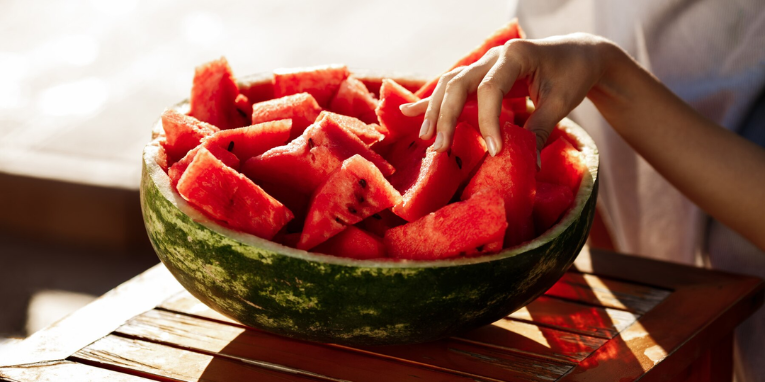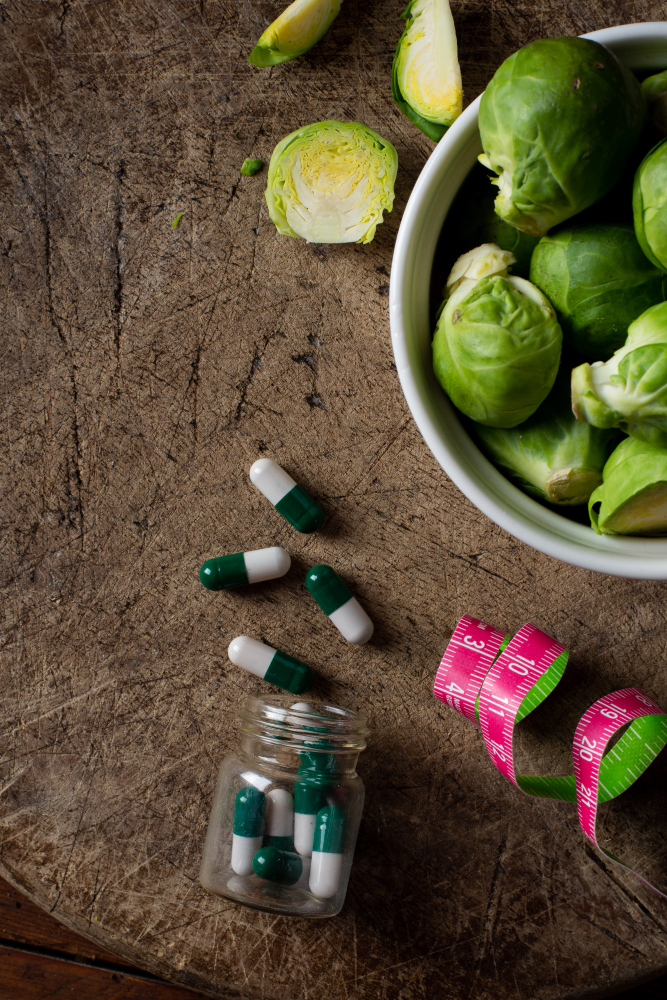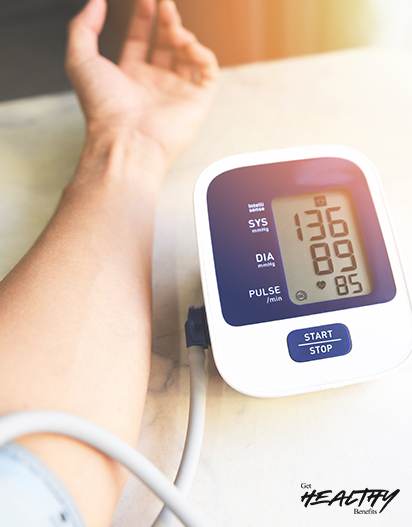Is Watermelon Safe for Diabetics? Let's Find Out!
Watermelon is one of the sweetest and most enjoyable fruits in the world. But if you have diabetes, then you may be wondering whether it is safe for you to consume. Interestingly, despite being a high-GI food, watermelon benefits diabetic patients when consumed in moderation.
Stable blood glucose levels can only be achieved by giving due consideration to the food chosen for patients suffering from diabetes and to avoid further complications in the future.
It is important to maintain a balanced diet with a lot of fruits and vegetables to be able to control sugar levels. After all, since fruit holds other types of natural sugars and carbohydrates, it is also essential to consider the proper serving size that an individual should consume.
According to ADA, there is no set distribution of the macronutrients comprising fats, proteins, and carbohydrates that will work for everyone. Rather, the individual goals and general health of the person should guide healthcare teams and dieticians to make personalized plans.
Watermelons are one of the sweetest and most healthy fruits worldwide. Conversely, those who are diabetic may question whether watermelon can be digested for the high amounts of sugar.
In this article, we are going to discuss the relationship between watermelon and diabetes based on its glycemic index, nutritional value, potential health benefits, and side effects that diabetic patients can expect.
Is Watermelon Good for Diabetes?
Watermelon is a low-calorie fruit that is nutrient-dense in vitamins, minerals, and antioxidants. It is also a high source of dietary fiber that helps control glucose levels and enhances insulin sensitivity. On the other hand, watermelon is also rich in natural sugars that may lead to an uncontrollable soaring of blood glucose.
What is the Glycemic Index of Watermelon?
The glycemic index (GI) is a measure of food’s ability to increase the blood sugar level in an individual. Rapidly digested and absorbed foods stimulate a sudden increase in glucose levels in the blood due to high GI. The process of the digestion and absorption of low glycaemic index foods is slow therefore leading to a slow rise in blood glucose levels. Watermelon has a relatively high glycemic index, and it varies from 72 to 80 depending on the maturity and variant of the fruit.
Although watermelon has a high GI, it is still considered a good food for diabetic people if they consume is in moderation. According to the American Diabetes Association, people who have diabetes should eat low glycemic fruits and focus their attention on eating a low-GI diet, which includes fruits, vegetables, whole grains, lean proteins, and others. A low-fat, low-cholesterol, and low-sodium fruit, watermelon can become an integral part of any diabetes-inclusive diet.
Nutritional Value of Watermelon
Watermelon is a low-calorie, nutrient-dense fruit that contains a lot of vitamins and minerals.
Secondly, watermelon is also rich in lycopene which is an antioxidant that helps to reduce the risk of developing heart disease, cancer, and other chronic conditions. Lycopene is the red pigment in watermelon, also found in other fruits and vegetables like tomatoes, guava, and papaya.
Benefits Of Watermelon For Diabetes
Many people ask, is watermelon healthy? Watermelon is a fruit that is high in sugar but may have valuable effects on patients with diabetes.
Lowers Blood Pressure
Watermelon is rich in potassium – a mineral whose role is to prevent high blood pressure and thus reduce the danger of heart disease. A common complication of diabetes is hypertension, and several potassium-rich foods including watermelon can control blood pressure and improve cardiovascular health.
Improves Insulin Sensitivity
Another amino acid, citrulline, is also present in watermelon and has been found to enhance insulin sensitivity and reduce inflammation in animal studies. Insulin resistance is a characteristic feature of type 2 diabetes, and the improvement of the insulin sensitivity can lower blood sugar, which will in turn reduce the risk of complications.
Provides Hydration
Since watermelon is over 90% water, people with diabetes can rest assured that this fruit will help them stay hydrated. It is necessary to remain hydrated to ensure normal sugar levels in the blood and avoid complications such as kidney failure or nerve damage due to dehydration.
How Bad is Watermelon for Diabetics?
Although watermelon can provide many health benefits for those with diabetes, it is not without risks. Here are some potential risks of watermelon for diabetes:
High in Sugar
It was already stated that watermelon is rich in natural sugars, which may lead to a fast rise of glucose levels in the blood. Diabetics should remember to be careful with their portions and avoid high-sugar fruits such as watermelon.
High in Carbohydrates
Watermelon is also moderately high in carbohydrates, whereas one cup of diced watermelon has 12 grams of carbs. Although this is not a large dose of carbs in watermelon, people with diabetes should pay attention to their total carbohydrate consumption while also keeping an eye on their blood sugar levels.
May Interact with Medications
Watermelon has compounds that can affect several medications, including blood pressure medication and Viagra. Those with diabetes who are taking medications should seek guidance from their healthcare provider regarding the high watermelon consumption.
How Much Glucose Is In Watermelon?
In a medium-sized slice, which is about 286 grams, there are about 17.7 grams of watermelon sugar. A person’s amount of sugar intake from watermelon will be dependent on the size of one’s serving. For instance, a person would ingest approximately 9.5 grams of sugar within a cup.
Is Watermelon Good for Type 2 Diabetes?
However, adding watermelon or any other fruit to a meal or snack is necessary to combine it with healthy fats and protein. This aids in the slowing down of the absorption of sugar into the bloodstream and can be beneficial in managing type 2 diabetes, especially among those who use their eating patterns to manage their blood sugar levels.
Eating watermelon without adding sugars in its whole and minimally processed form is advisable. On the other hand, it may also be used as an ingredient in a fruit salad and eaten with other dishes as part of a full meal. During the consumption of watermelon, it is essential to avoid combining it with other high-GI foods; instead, it should be combined with nuts, seeds, and other sources of nutritious fats and proteins.
It is recommended that diabetic patients should not drink watermelon juice because it may have a higher glycemic load than fresh solid watermelon. One should also pay attention to a specific fruit’s position on the GI map and decide in favor of fruits that contain less sugar and more fiber. In general, it is better not to consume sweet drinks such as fruit juice and smoothies.
Alternatives Of Watermelon
Low-glycemic fruits that could have fewer impacts on blood sugar include oranges, berries, grapefruits, apples, peaches, kiwis, and pears. People with diabetes should also try to maintain a balanced, healthy diet rich in fruits and vegetables and keep their limited fruit intake.
Final Words
To summarize, watermelon can be a beneficial part of a diabetes-healthy diet if eaten in limited quantities. Though it is rich in natural sugars and has a moderate GI, it is low in calories, offers great amounts of vitamins and minerals, and has many health benefits for diabetics: lowering blood pressure and improving insulin sensitivity, and hydration. Nevertheless, diabetic patients should pay attention to the size of their servings, check their blood sugar levels, and seek advice from an individual health provider before eating a lot of watermelons or any other food.
Share this post
Older Posts
20 Foods to Avoid for Effective Weight Loss
Subscribe to new posts











